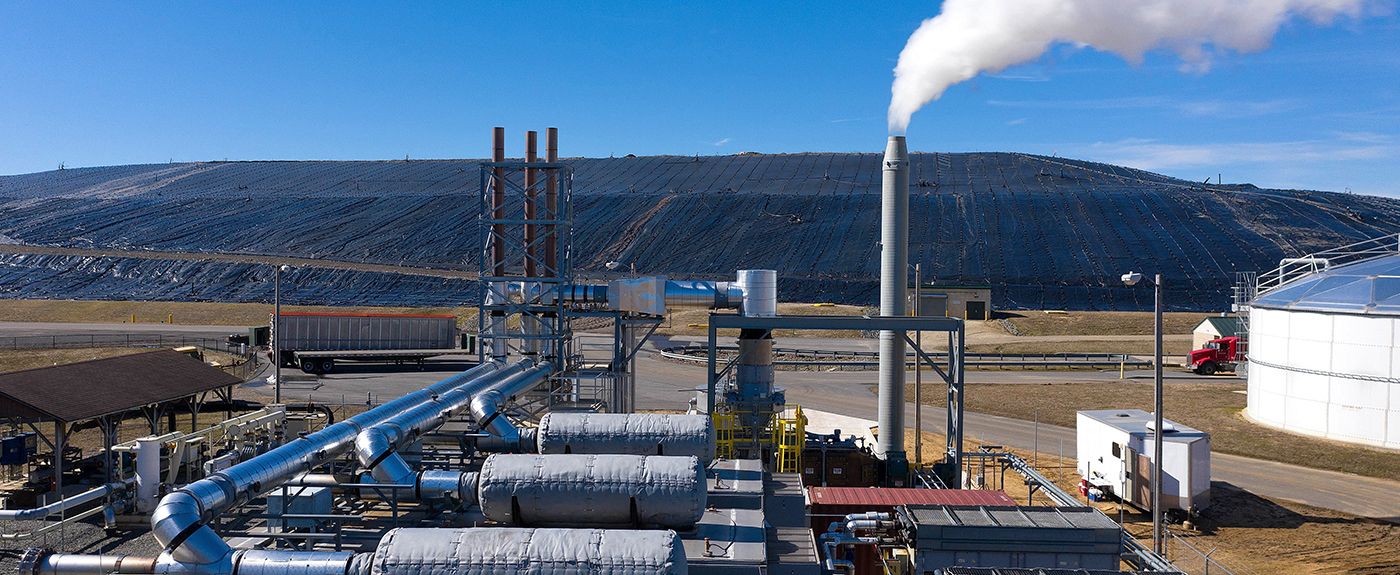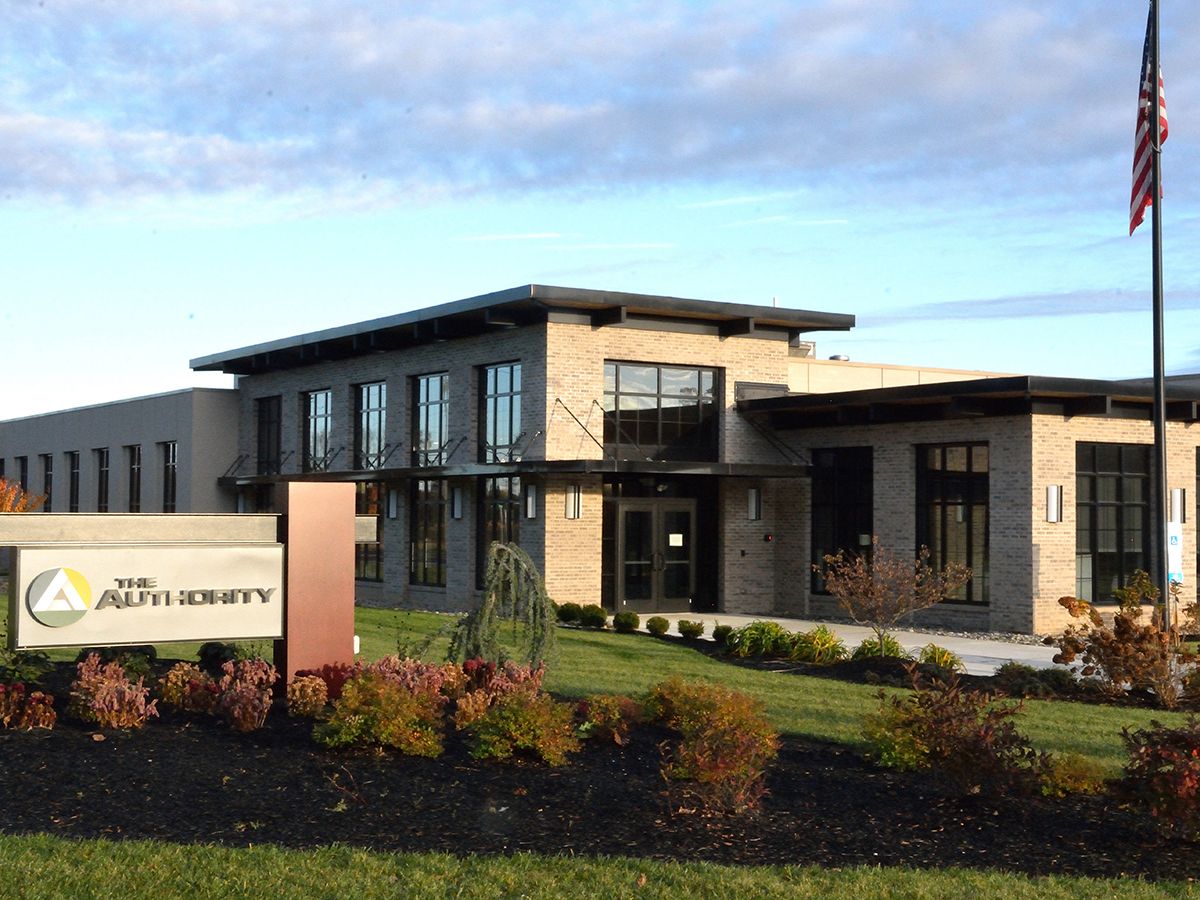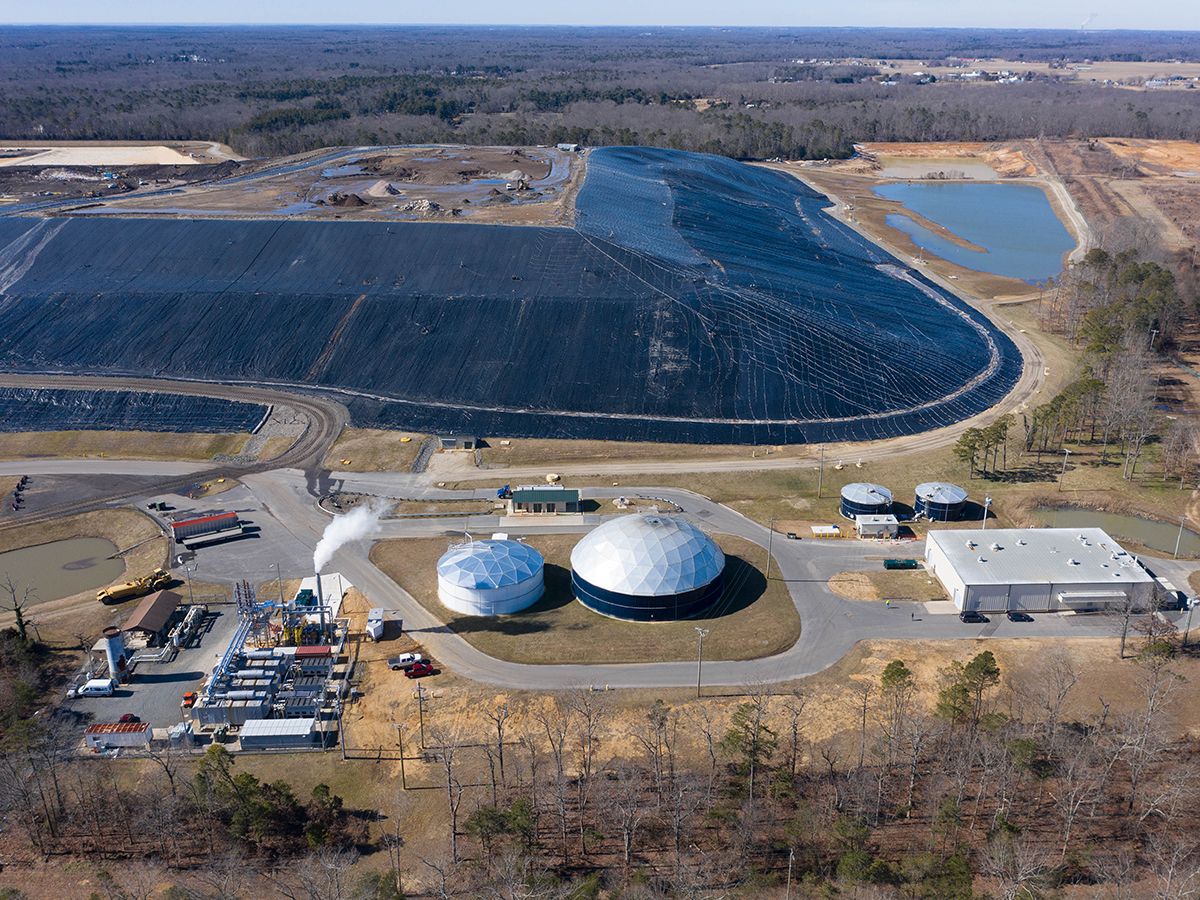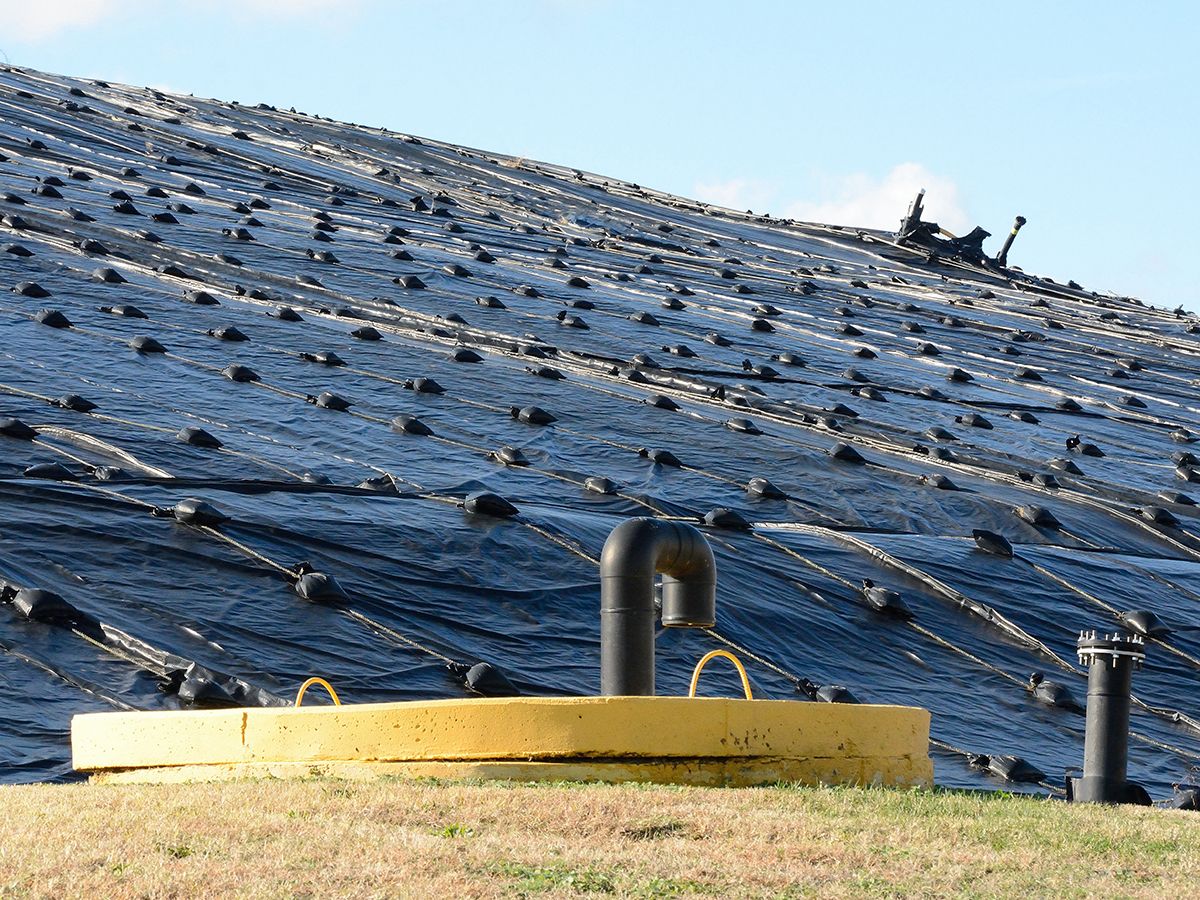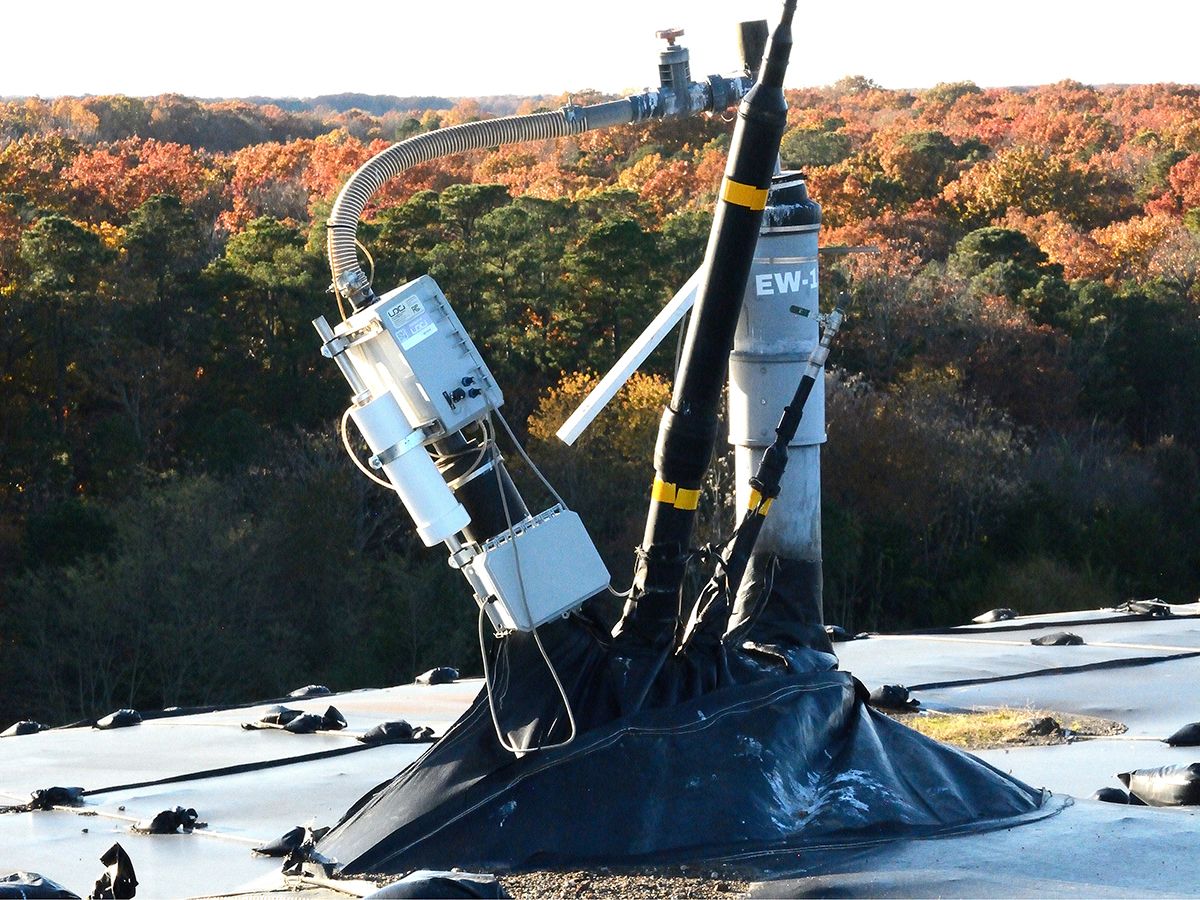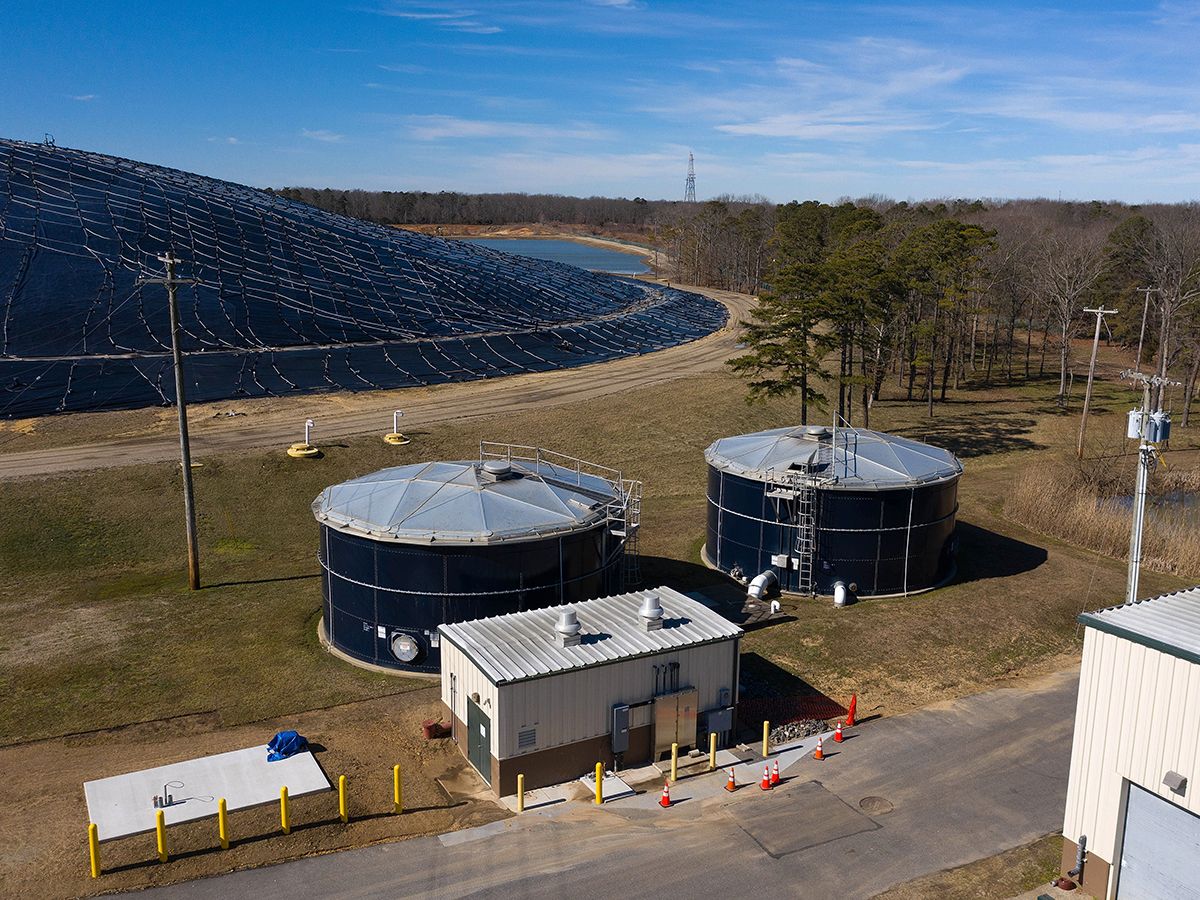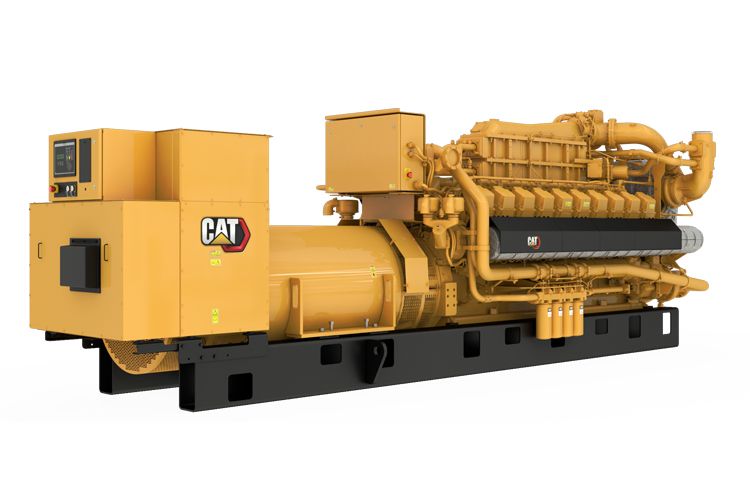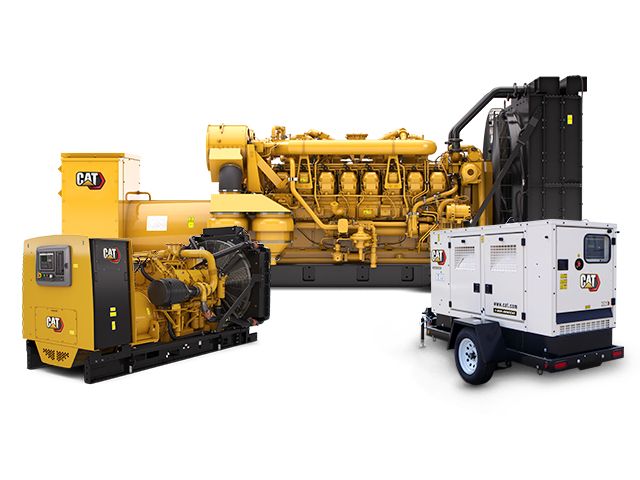POWER NEED
Located 45 miles southeast of Philadelphia in southern New Jersey, the Cumberland County Improvement Authority’s primary mission is to promote and develop the economic and environmental health of the region.
Based just outside Millville, N.J., The Authority is the only landfill operator in New Jersey to operate a microgrid, maintaining and operating its own electrical infrastructure. The microgrid enables The Authority to more completely recycle on-site energy produced from its own landfill gas.
A forward-looking Energy Hub combines innovative, sustainable practices in one location. The total annual economic impact for The Authority landfill microgrid is estimated at $13.5 million.
“We do not utilize taxpayer revenue; all of our operations are supported by fees that we collect,” says Gerard Velazquez III, president and CEO of the Cumberland County Improvement Authority. “The key is to be sustainable on the economic side, which is the tipping fees that we collect and other creative things that we do to generate the revenue that sustains us.
“The other part of the sustainability mix is how we can better accomplish our environmental goals,” Velazquez says. “The ability to implement these programs while creating environmentally friendly and sustainable systems is integral to the ongoing operations of The Authority and its energy partners. So, sustainability is in our blood—it’s what we do.”
The Solid Waste Complex currently receives 540 tons of solid waste per day and operates 160 methane gas wells—this number will increase as the 275-acre landfill expands. The greenhouse gas (GHG) impact of methane is up to 84 times worse than CO2, so collecting and destroying this gas is important. Many landfills in the U.S. simply flare their landfill gas. The Authority saw the opportunity to use this gas beneficially to further reduce GHG emissions and simultaneously create economic value for the county.
“Trash is something that’s going to be with us forever,” Velazquez says. “So, if you’re in the trash business, the reality is you have to be a good environmental steward. For all of the things that we have going on here, there is zero impact. Not only are we all but eliminating greenhouse gas emissions, but there is virtually no odor coming from the landfill. When you pass the landfill and you don’t notice the smell, that’s a good day.”
SOLUTION
Dating back to 2006, The Authority saw an opportunity to reduce GHG emissions while creating economic value. As a result of a longstanding public-private partnership, Allentown, Pennsylvania-based Energy Power Partners (EPP) owns and operates a 4.8 MW landfill gas-to-energy plant in operation since 2008 at the Solid Waste Complex.
Three Cat® G3520 gensets are fueled by methane gas from the landfill and produce approximately 20 million kilowatt-hours each year—enough electricity to power 1,600 homes. The project reduces annual emissions by 15,000 tons of carbon dioxide.
Electricity produced by the generators is primarily used to power all facilities at the Solid Waste Complex, as well as The Authority’s nearby offices. The remaining power from the waste-to-energy project is sold back to the local utility grid.
“We researched many different renewable technologies, especially when we started this business several decades ago,” says Steve Gabrielle, a partner with EPP. “And clearly, Caterpillar was the premier engine then and remains so today.”
“Landfill gas is comprised of half methane and other constituents,” Gabrielle continues. “And you need the right engine to properly destroy that gas and generate electricity. Through our research, we saw that Caterpillar had a very robust engine that could handle the biogas here at this landfill and other landfills where we have operations. There aren’t a lot of manufacturers that have a product like that.”
The Authority’s Velazquez concurs with that assessment.
“There are many landfills in New Jersey that are flaring their gas every day because their engines cannot hold up to carbon and the other elements that are part of landfill gas. And those landfills are not utilizing Cat engines. When you take a look at what’s happening throughout the state, the long-term performance of the Cat engines certainly stands out.”
In a unique form of cogeneration, the waste heat from the generator sets is used to preheat the landfill leachate storage tanks and treat the leachate, which is the fluid that collects at the bottom of the landfill.
On average, the Solid Waste Complex treats on average 100,000 gallons of leachate per day (GPD) using a membrane technology called reverse osmosis (RO). However, the RO process creates 30,000 gallons per day of highly concentrated leachate that was formerly trucked offsite to a location 40 miles away for disposal.
Working with Energy Power Partners, The Authority began a project three years ago to install a leachate evaporation system from Heartland Water Technology. Heartland’s solution, called the Heartland Concentrator™, is a patented process that uses the hot exhaust from the power plant for evaporation, creating an energy-efficient cogeneration solution.
Before installation of the evaporation system, the exhaust heat from the generator sets was not used in a beneficial way, notes Casey Cammann, a spokesman for Heartland Water Technology in Hudson, Mass.
“We were able to duct together exhaust from multiple engines and create a path of least resistance,” Cammann says. “The system works on a negative pressure, so we’re pulling the exhaust from the engines into the concentrator where it can evaporate the leachate.”
RESULTS
By evaporating the leachate concentrate, The Authority eliminated GHG emissions and environmental risks associated with nearly 1,500 truckloads per year that were previously hauled offsite, saving the county thousands of dollars annually. Additionally, the combined reverse osmosis and evaporation system achieves a 98 percent reduction in raw leachate. Clean water derived from the process is collected in a large holding pond at the Solid Waste Complex.
Cat dealer Cleveland Brothers Equipment Co. played a key role in both the landfill gas-to-energy and evaporator projects. At the outset of the project, the Cat generators and custom enclosures at Cumberland County were sourced through Cleveland Brothers during 2007.
The Cat dealer designed and built the hot gas duct system, new exhaust stack structure, as well as the containment pad. It also installed the Heartland Concentrator system.
Serving in the role of construction manager and general contractor, Cleveland Brothers also designed and built a jacket-water heat-recovery system, pump skid, and underground pipeline that connects to the treatment plant. The heat exchanger uses heat from the Cat engines to keep the stored leachate warm enough to continue efficient water treatment throughout the winter by sustaining the biological process and keeping the filtration process running at an optimum flow rate.
The Authority’s mission to sustain the environmental future of the county does not stop there. The Authority’s Solid Waste Complex has an on-site public Compressed Natural Gas (CNG) fueling station and a fleet of eight CNG-fueled vehicles. CNG emits 50 percent less carbon dioxide than coal when burned. First opened in January 2019, the fueling station provides the opportunity for businesses who have made the switch to CNG to fuel their vehicles quickly and conveniently.
“The concept around the Energy Hub is taking everything that we do from an energy standpoint, bringing it in house, and essentially controlling our destiny,” Velazquez says. “So, generating electricity with methane gas from the landfill and distributing it through our microgrid, along with treating the leachate and minimizing its environmental impact—everything that we do here is designed to make landfill operations sustainable.”
Looking back, the original concept of waste-to-energy at the Cumberland County Solid Waste Complex utilizing landfill gas has evolved over time, and is likely to continue. Future plans call for creating an enterprise zone so that more businesses can use the power produced by the gensets. Another idea involves supplying energy to battery-charging power stations for electric vehicles.
“What was just a simple project focused on making electricity has today become a comprehensive energy hub for the residents of Cumberland County,” EPP’s Gabrielle says. “The beneficial use at this complex has grown tremendously over the last decade under this partnership with The Authority.”
Download the Power Profile


